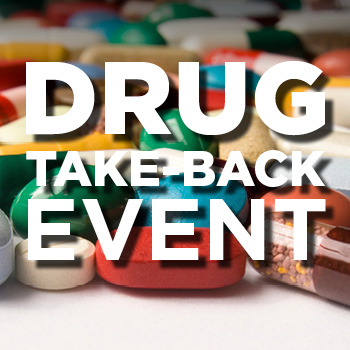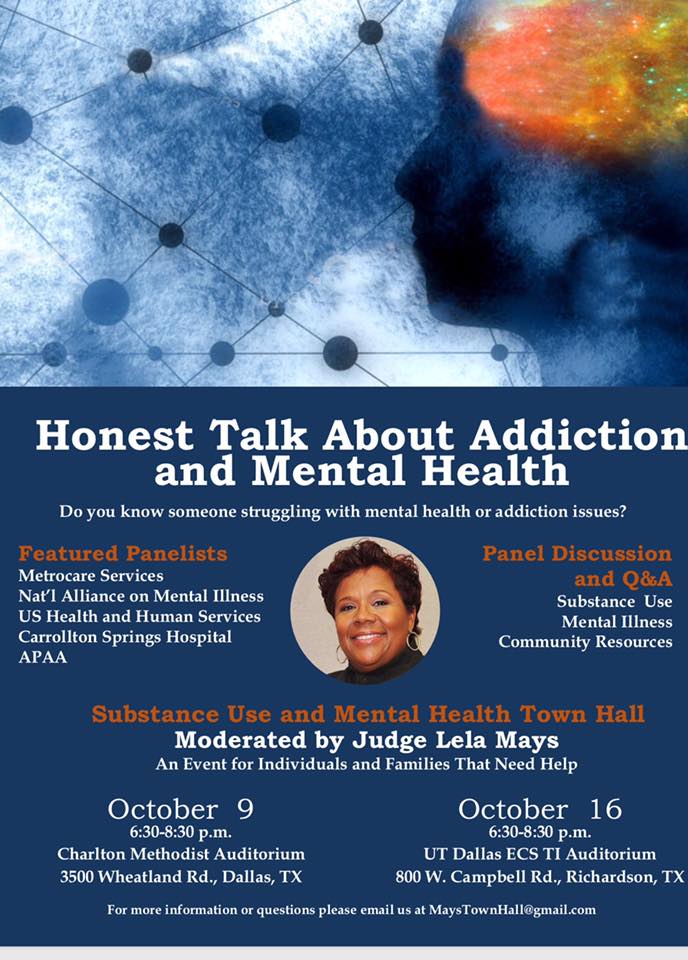
Understanding Gender Dysphoria: Symptoms and Treatments
The term gender dysphoria “is defined by strong, persistent feelings of identification with another gender and discomfort with one’s own assigned gender and sex; to qualify for a diagnosis of gender dysphoria, these feelings must cause significant distress or impairment.” (Psychology Today, 2019)
Gender dysphoria as you can imagine can be challenging for the individual going through it and also the individuals family and peers. It is common for people who suffer from gender dysphoria to feel isolated and depressed, because of how misunderstood they feel.
Common signs of gender dysphoria in children, adolescents, and adults can be:
- A strong desire to be of the other gender
- A strong desire to be treated as the other gender
- A firm conviction that one has the typical feelings and reactions of the other gender
- Identifying more with the other gender
- Strong rejection activities usual of one’s assigned gender
- A strong dislike of one’s sexual anatomy
- A strong desire for the physical sex characteristics that match one’s experienced gender
Those who suffer from gender dysphoria use a variety of treatments to help ease their symptoms. According to WebMD, “the goal is not to change how the person feels about his or her gender. Instead, the goal is to deal with the distress that may come with those feelings.” (WebMD, 2018)
Many people work through feelings of dysphoria with the help of a trained therapist or counselor. Individuals who wish to take hormones and/or pursue surgery to align physical characteristics with their gender better may find feelings of dysphoria begin to ease as they take these steps. These steps are offered after a year of therapy after making sure this is the best route. Some may merely live as their true gender without hormones or surgery.
Many individuals legally change their name and gender marker to reflect their true gender, and for many individuals, it may be the case that being socially recognized as a member of their actual gender and being addressed by the correct pronouns helps to ease feelings of dysphoria.
References:
American Psychiatric Association, Diagnostic and Statistical Manual of Mental Disorders, Fifth Edition
National Institutes of Health—National Library of Medicine
“Gender Dysphoria.” Psychology Today, Sussex Publishers, www.psychologytoday.com/us/conditions/gender-dysphoria.
“Gender Dysphoria: Symptoms, Diagnosis, Treatment.” WebMD, WebMD, www.webmd.com/sex/gender-dysphoria.
If you think that you or your child might be struggling with symptoms of gender dysphoria, please contact us at 469-714-0006 or by emailing info@exulthealthcare.com. We offer compassionate services for all ages and are committed to your emotional health.
Written by Aly Bowles – Social Media Coordinator

ADHD & Sleep
The links between ADHD and sleep issues are still unclear, as is the cause of ADHD in general. Both the symptoms of ADHD and some of its medications can affect sleeping patterns. Also, “sleep deprivation…can worsen ADHD symptoms.” Nearly 50% of kids with ADHD suffer from some sort of sleep problem and nearly 75% of adults with ADHD reported suffering from insomnia.
Common Sleep Problems Associated with ADHD:
- Anxiety or resistance about bedtime (in children)
- Difficulty falling asleep at night
- Difficulty waking up in the morning
- Sleep-disordered breathing and sleep apnea
- Interrupted sleep (waking up during the night)
- Excessive daytime sleepiness
- Restless legs syndrome (RLS)
- Periodic limb movement disorder (PLMD)
- Delayed sleep-phase disorder
- Higher rates of nightmares
- More likely than average to experience parasomnias like sleepwalking
Treatments for these ADHD-related sleep issues include cognitive behavioral therapy (CBT) and medication management. Contact Dr. Bharagava’s office to see if these treatments may help you or your child’s ADHD symptoms.
Source: “ADHD and Sleep” by Tuck.com
Gabby Lundy, Exult Healthcare

McKinney Drug Take-Back Event
On Saturday, October 27th, 2018 the City of McKinney Police Department and the Collin Count Sheriff’s Office will host their periodic DEA Nationwide Drug Take-Back event. From 10:00 am to 2:00 pm at the Public Safety Building, people “can safely dispose of all accumulated expired, unwanted, and unused prescription drugs. The service is free and anonymous. You do not have to be a resident of McKinney to participate.”
For a list of what they will or won’t take and other information, visit the event page here.
Date: October 27, 2018
Time: 10:00 AM - 2:00 PM
Location: Public Safety Building
Address:
2200 Taylor Burk Dr.
McKinney, TX 75071
Contact: 972-547-2844
Email:
Questions? Email us.
Cost: Free
Link: More information

What Treatments Do Psychiatrists Use?
Treatment Types:
-
Psychotherapy
-
Medications
-
Psychosocial Interventions
-
TMS
-
Other Physical Treatments (Less Common):
- ETC, DBS, & VNS
Psychotherapy is often the first step with patients. From there, a psych eval will be done and it will be determined if the patient would benefit from a medication plan.
Class of Medications:
- Antidepressants – used to treat depression, panic disorder, PTSD, anxiety, obsessive-compulsive disorder, borderline personality disorder and eating disorders
- Antipsychotic medications – used to treat psychotic symptoms (delusions and hallucinations), schizophrenia, bipolar disorder
- Sedatives and anxiolytics – used to treat anxiety and insomnia
- Hypnotics – used to induce and maintain sleep
- Mood stabilizers – used to treat bipolar disorder
- Stimulants – used to treat ADHD
These medications can “help correct imbalances in brain chemistry that are thought to be involved in some mental disorders.” Psychiatrists are one of the few mental health providers that can prescribe medication and are usually a necessary piece of long-term medication management for mental health issues.
Source: “What is Psychiatry?” American Psychiatric Association
Gabby Lundy, Exult Healthcare

Mental Health & Chronic Illness: Selena Gomez
Last Wednesday, pop singer and television producer, Selena Gomez was admitted to a psychiatric hospital. She is told to have suffered a panic attack after a recent health setback related to her two recent hospitalizations for “low blood cell count” post-kidney transplant. Gomez has Lupus and underwent a kidney transplant in September of 2017 because of Lupus-related complications.
Selena Gomez has been open about her struggles with Lupus–a chronic illness that causes –and with mental health since 2015. Early in 2018, Gomez received outpatient psychiatric treatment to address anxiety. However, Gomez is not the only person whose mental health has suffered as a result of dealing with a chronic illness.
Chronic Illness and Depression
Chronic illnesses of all kinds can cause or worsen depression in the following ways:
- Increased feelings of isolation
- Taking off more time from work, school & social events for treatment and self-care
- Feeling like no one understands your condition
- Increased fatigue in some chronic illnesses may make depression-related fatigue worse
- Inflammation symptoms (in some chronic illnesses such as Lupus) which have some evidence pointing to causing or worsening depression
- Enhanced life, work, financial, and relationship stressors as a result of the chronic illness
Taking control of your mental health can be one piece of dealing with a chronic illness and your overall health. Doctor Heals Mind has a variety of treatments available for depression and other mental health issues. Please check out our depression treatment page to find a solution that best fits your needs.
By: Gabby Lundy, Exult Healthcare

Who Can Help Treat My Depression?
Mental health treatment can be found from a variety of professionals, especially for depression. Knowing your own symptoms and needs can help you determine what type of care provider is needed to best treat your depression. You may even see more than one of these professionals at a time to get the best care possible. Let’s break down some differences between these mental health care professionals.
Primary Care Doctors
Your general doctor may be the first person you see to access care. They can:
- Recommend a behavioral health provider such as a therapist, counselor, psychiatrist, etc.
- Prescribe and monitor medication
- Monitor your progress and follow up over time
Psychiatrists
Psychiatrists have medical degrees (MD) and specific training in mental health conditions. They can:
- Assess your symptoms to make an informed diagnosis
- Assess the need for medication
- Prescribe and monitor medication
- Provide psychotherapy
Licensed Counselors, Therapist, and Social Workers
All three of these providers have a master’s degree (MS), a doctorate (Ph.D.), or another type of graduate-level certification. They have completed an internship and one (or more) years of supervised practice. They can:
- Assess your symptoms to make an informed diagnosis
- Provide talk therapy (also known as counseling)
- Offer specialized counseling, such as family or marriage therapy
Psychologists
Psychologists have a master’s degree (MS) or a doctorate (Ph.D./PsyD) in psychology. They are not medical doctors nor can they prescribe medication (in most cases). However, they can:
- Assess your symptoms to make an informed diagnosis
- Provide talk therapy (also known as counseling)
- Conduct psychological testing
- Refer you to a psychiatrist for medication
Psychiatric Nurse Practitioners
Psychiatric nurses are register nurses (RN) that also have graduate-level education in mental health. They can:
- Assess psychiatric conditions
- Prescribe and monitor medication
- Follow up with medication management and coordination of care
If you feel like medication may be part of your mental health treatment, Dr. Bhargava, a board-certified psychiatrist, may be able to help. Visit our Depression Treatment page for more information.
If you are more interested in talk therapy, Exult Healthcare has licensed therapists and counselors that have a variety of specialties. They also offer transcranial magnetic stimulation (TMS) treatment if therapy and medications are not working for you.
Source: https://www.aetna.com/individuals-families/mental-emotional-health/depression-care-providers.html
Gabby Lundy, Exult Healthcare

Dr. B Speaks on “Honest Talk About Mental Health and Addiction” Panel

Last night, Dr. Bhargava spoke on a local panel discussing substance abuse, mental health, and local resources for support. The town hall event—moderated by Judge Lela Mays—featured panelists from a variety of government and healthcare services related to mental health and addiction to answer questions about community resources and funding issues.
Missed the discussion? Dr. B will be participating in the next panel which will be held on October 16th from 6:30-8:30 p.m. at UT Dallas ECS TI Auditorium. (See flyer for more details.)

By: Gabby Lundy, Exult Healthcare
Reading Between the Lines, Bibliotherapy
Have you ever heard of bibliotherapy? I’m always trying to identify ways to start working on recovery from depression, but I never thought much about one of the first steps I took – reading. I was surprised to learn that reading books for medical treatment dates to World War II, when it proved effective for wounded veterans. Bibliotherapy also seems to be helpful for depression.
Even though I first learned that “depression” was the name for my problems when I was in my twenties, a couple of decades went by before I really studied the disorder. That may seem odd since I’d been in therapy on and off for many years and had also taken a number of antidepressants. I think the delay in trying to learn more was one sign of my resistance to treatment as well as a denial of how seriously depression was affecting my life. Besides that, neither psychotherapy nor medication had helped me for very long.
Something was missing, and reading about how I could help myself opened new possibilities. It was like the healing effect of writing. There was something about getting new concepts and ideas into my mind, as well as down on paper, that made an enormous difference. These activities helped me get a real start on recovery.
Feeling Good
There are claims that reading self-help books on depression may be do more than get you started. There is some evidence that it may also work as the primary therapy for major depressive disorder. I find that a bit far-fetched. Even if I could have read all the thousands of self-help books on depression, that activity alone would never have dealt with the severe illness I lived with. Apparently, though, working with the best self-help books can work for people with mild to moderate depression.
If you’re familiar with David Burns’ classic Feeling Good: The New Mood Therapy, you can read in the introduction about formal studies on the therapeutic effectiveness of reading self-help books – specifically that one.
In the study Burns discusses, about 75% of the participants no longer met the criteria for a major depressive episode after four weeks spent reading his book – using no other therapy. All had met the criteria for major depressive disorder (not just a single episode) going into the study. That rate of recovery is impressive, even though it was clear that those with severe depression needed additional help. But did recovery hold up over time? To answer that question, the participants were interviewed and tested again after three years.
The diagnostic findings at the three-year evaluation confirmed [earlier improvement] — 72% of the patients still did not meet the criteria for a major depressive episode and 70 percent did not seek or receive any further treatment with medications or psychotherapy during the follow-up period. … While it is encouraging that many patients seem to respond to reading Feeling Good, it is also clear that some patients with more severe or chronic depressions will need the help of a therapist and possibly an antidepressant medication as well. p. xxviii
One or two studies are hardly conclusive, but these were promising findings. More recently, several studies have been conducted on the effectiveness of other self-help manuals. For the most part, the findings are similar to the studies from the 1990s cited by Burns. According to a 2007 Wall Street Journal article(subscription required), bibliotherapy is most effective when used in conjunction with other forms of therapy.
Cognitive Behavioral Therapy
Feeling Good and most of the popular self-help workbooks use the model of Cognitive Behavioral Therapy (CBT). This approach helps you identify specific patterns of thinking that support a negative view of yourself and reinforce the emotional lows of depression. The method teaches you to counteract these habitual patterns with more realistic ones so that your mind opens to a balanced interpretation of experience rather than one that is always negative.
CBT techniques lend themselves especially well to working on your own. Many therapists either provide worksheets for daily practice or recommend the use of workbooks that include blank forms in which you can note these patterns and then write your own words to counteract them.
I would imagine, then, that the benefit of workbooks comes not just from reading but also from interacting with the content and practicing new skills. For me, both the reading and writing have helped a lot because I find there’s a powerful restorative effect from formulating words and concepts to pinpoint what I’m experiencing.
Reading and Neuroplasticity
There doesn’t seem to be a lot of research about why bibliotherapy works, but I’ve run into untested ideas that relate the process of reading to the recent emphasis on neural plasticity. That’s the ability of the brain to form new neural circuits and activate areas of the brain that haven’t been functioning well. The concept is that learning by reading helps form new circuits that can change habitual thought patterns. By introducing new possibilities and neural connections, parts of the brain that are less, or more, active under the influence of depression can be restored to a the patterns of non-depressed brains.
But whatever might be going on with the brain, I know I’ve felt more hope for recovery and made progress on my own by reading books – and, just as important, reading blogs and other online sources of information. The process of absorbing new ideas through the impact of written words can be helpful whether or not you like to use workbooks and practice exercises.
Written by: John Folk-Williams, Storied Mind,
Twitter: @StoriedMind
The views of the article and writer and are not expressly the views of Exult Healthcare, although Exult Healthcare has consulted the author for use and proper attribution of the article.
Looking Under the Shadows
During severe depression something people take solace in the idea that they could end it all but a majority of people never act upon it due to religious views, support systems, family commitments or the knowledge that the depression will pass. Sometimes the emotional pain becomes seemingly so unbearable the idea of suicide leads to action.
Normally, the person thinks family members would be better off without them because they are a burden. The depression feeds into negative thoughts that feel like truths like “you are worthless” or “you will never amount to anything”. They can not see beyond the reality that the depression is projecting. The current depression is all consuming and the future looks like a dystopia.
A person with severe depression usually isolates themselves to the point that they feel there is no one to turn too.
They have anhedonia, a loss of pleasure in things and activities, so what normally would make them happy and pull them out of the depression. They loss the ability to concentrate and the world is just a blur and they are unable to make logical and informed decisions. They are afraid to ask for help or are embarrassed that they cannot cope with things on their own. The darkness seems for engulfing that they can not look up to see the sun. The all-encompassing nature of depression makes it hard to untangle from it on their own.
Some Warning Signs of a Pending Attempt:
- feeling hopeless
- feeling intolerable emotional pain related to depression
- having an abnormal fascination w/ death and dying or talking about suicide or dying
- having mood swings from happy to sad
- increased irritability
- talking about issues related to anger, guilt or shame
- have an increase in anxiety
- experiencing changes in personality, routine, or sleeping patterns
- Decrease in hygiene
- Unable to get out of bed
- personality changes
- an increase or recent usage of drugs and alcohol
- engaging in risky behavior that could lead to an accidental death
- putting their affairs in order like giving away important possessions
- resolving issues or staying goodbye to people
- gathering means to commit suicide
- increased isolation
- feeling they are a burden to others
- seeming to be unable to experience pleasurable emotions from normally pleasurable activities
- negative thoughts like “I’m useless.” or “Everyone would be better off if I was not here.”
- relationship issues
- bullying
- trauma
Please seek help, if you or someone you know is suicidal. Assistance can be provided at your local ER or mental health facility.
The National Suicide Prevention Lifeline is always open. You can reach a trained counselor at 800-273-TALK (800-273-8255) or chat online at https://suicidepreventionlifeline.org/
Text the Crisis Support line at 741741
Written by: Karen Limme, LPC-Intern
May was Made for Mental Health
As a behavioral health facility, we believe the awareness of mental health is key. With May being mental health awareness month, we tried an outreach program with the community to learn more about what Exult as a family can do for the North Dallas mental health community.
One of the services we offered during May, and plan to continue offering, is our free mental health screenings. This is where anyone can come into our facilities to meet with a mental health professional and learn if they need our services. From this, we have seen people who walked in from the streets and set up a screening the same day. Many individuals do not notice in themselves that their mental health is taking a beating until told by others. Not only are you getting an outsider’s opinion, but also the aid of mental health professionals who know and understand the signs.
Exult has also been working with the community to have a greater program in outreach programs accessible to everyone. Recently, Alex Medrano and Sabrina Bhargava went to the McKinney Kiwanis Club and presented a presentation in mental health awareness. They were able to interact with some of the community and address growing issues. From the meeting, they learned the difficulties that parents have been facing and the need for a more parent involved program.
Through and through, Exult Healthcare’s month of May was dedicated to raising awareness. The biggest outcome is the constant awareness that needs to be done in North Dallas on behalf of mental health. Dr. B has made it a goal to grow with the community and offer whatever Exult Healthcare can do the individuals around us.


